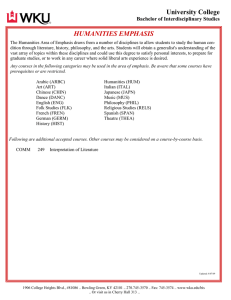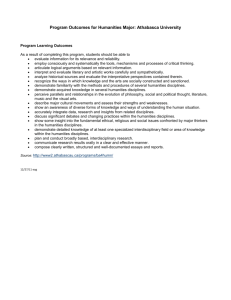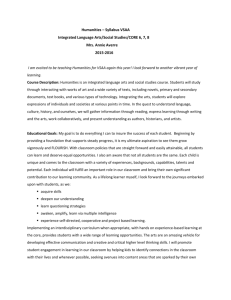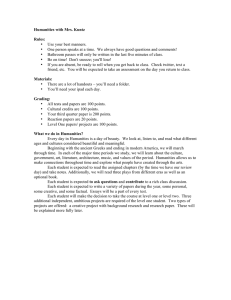Johnson, Christa, et al - PANEL Disciplining Interdisciplinarity? The Future of Interdisciplinary Research in the Humanities
advertisement
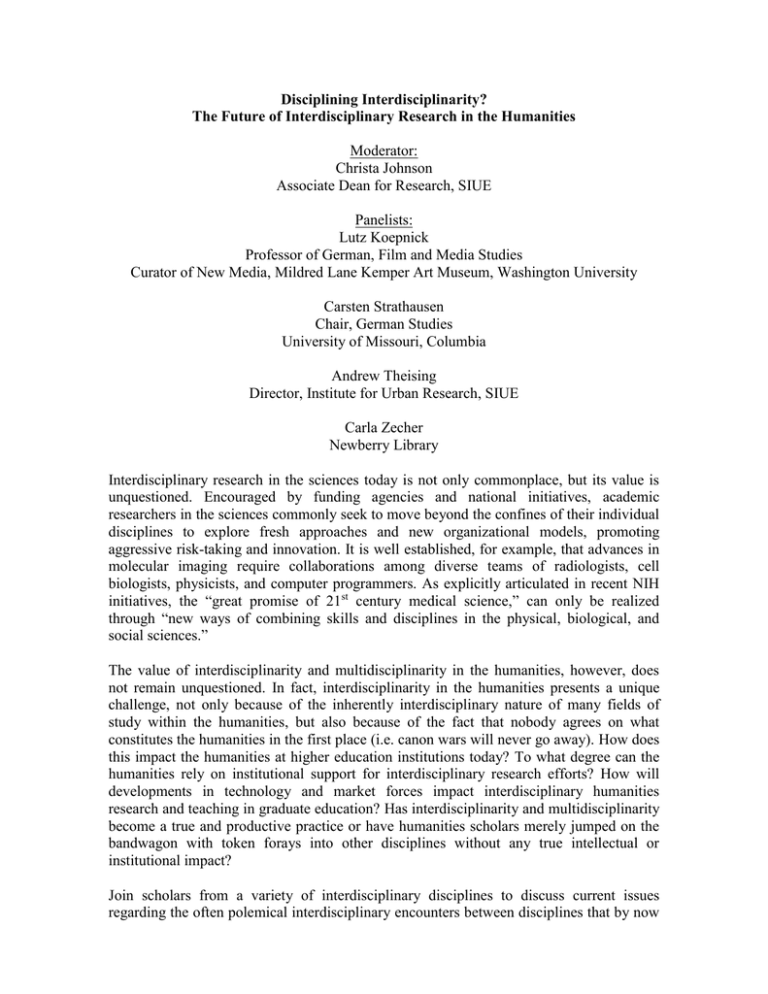
Disciplining Interdisciplinarity? The Future of Interdisciplinary Research in the Humanities Moderator: Christa Johnson Associate Dean for Research, SIUE Panelists: Lutz Koepnick Professor of German, Film and Media Studies Curator of New Media, Mildred Lane Kemper Art Museum, Washington University Carsten Strathausen Chair, German Studies University of Missouri, Columbia Andrew Theising Director, Institute for Urban Research, SIUE Carla Zecher Newberry Library Interdisciplinary research in the sciences today is not only commonplace, but its value is unquestioned. Encouraged by funding agencies and national initiatives, academic researchers in the sciences commonly seek to move beyond the confines of their individual disciplines to explore fresh approaches and new organizational models, promoting aggressive risk-taking and innovation. It is well established, for example, that advances in molecular imaging require collaborations among diverse teams of radiologists, cell biologists, physicists, and computer programmers. As explicitly articulated in recent NIH initiatives, the “great promise of 21st century medical science,” can only be realized through “new ways of combining skills and disciplines in the physical, biological, and social sciences.” The value of interdisciplinarity and multidisciplinarity in the humanities, however, does not remain unquestioned. In fact, interdisciplinarity in the humanities presents a unique challenge, not only because of the inherently interdisciplinary nature of many fields of study within the humanities, but also because of the fact that nobody agrees on what constitutes the humanities in the first place (i.e. canon wars will never go away). How does this impact the humanities at higher education institutions today? To what degree can the humanities rely on institutional support for interdisciplinary research efforts? How will developments in technology and market forces impact interdisciplinary humanities research and teaching in graduate education? Has interdisciplinarity and multidisciplinarity become a true and productive practice or have humanities scholars merely jumped on the bandwagon with token forays into other disciplines without any true intellectual or institutional impact? Join scholars from a variety of interdisciplinary disciplines to discuss current issues regarding the often polemical interdisciplinary encounters between disciplines that by now are inherently interdisciplinary—such as German or French or Renaissance Studies—and disciplines that often still attempt to maintain a more narrowly defined disciplinary core, such as art history or history.
